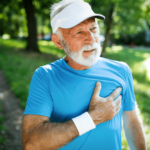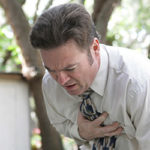 This syndrome can mimic a panic attack or a heart attack.
This syndrome can mimic a panic attack or a heart attack.
In most cases, hyperventilating is depicted as someone becoming very upset by a certain event on TV. They are then given a paper bag and told to breathe deeply into it to improve their condition. This is a very short time in which to feel better.
The truth of what this syndrome entails isn’t as drastic, quick, or as easily calmed.
A woman came to see us recently complaining of various symptoms, such as chest pain, heart palpitations, and strange sensations down her left arm and into her neck. She said that she felt like she had consumed a lot of energy drinks, when in fact, she had zero.
After performing an electrocardiogram, which is a standard test for the heart, we were able to confirm that her heart was fine. We then conducted an echocardiogram and a stress test.
What she was experiencing was Hyperventilation Syndrome.
- Chest pain (Crushing, squeezing, and even stabbing)
- Fever
- Chills
- Fainting
- Racing heartbeat
- Having a hard time breathing – shortness of breath or feeling like you just can’t get enough air
- Frequent yawning
- Numb feelings in hands and or feet
- Muscle spasms
It can be triggered by stress and anxiety. It can also be caused by the body’s response to certain stimuli.
- Anxiety
- Panic attacks
- Asthma
- Stress
- Worrying
- Exercise
- Side effects of certain drugs
- High altitude
- Head injury
- Shock
- PTSD triggers
Treatment and Relief
- Focus on taking controlled breaths
- For this exercise, you should put your lips into a position that’s similar to how you would blow out birthday candles. Breathe slowly through your nose, and then slowly breathe out through a small opening between your lips. Repeat this exercise until you feel better.
- Limit airflow: breath through one nostril only, and slowly.
- Breathe into a paper bag: This does work but you must do it slowly and repeatedly for 5 to 6 minutes.
If you are experiencing these symptoms, it is important to talk to your doctor about it. Hyperventilation Syndrome is one of the most under-recognized conditions.
Visit WWW.TAMPACARDIO.COM to learn more about our facilities and how we can help.
Never ignore chest pain. If you are not sure of the cause seek medical help immediately.


 If you’ve ever experienced depression you understand that it can sometimes feel like you have a broken or heavy heart.
If you’ve ever experienced depression you understand that it can sometimes feel like you have a broken or heavy heart. 
 Anxiety disorders affect 40 million adults in the USA.
Anxiety disorders affect 40 million adults in the USA. 